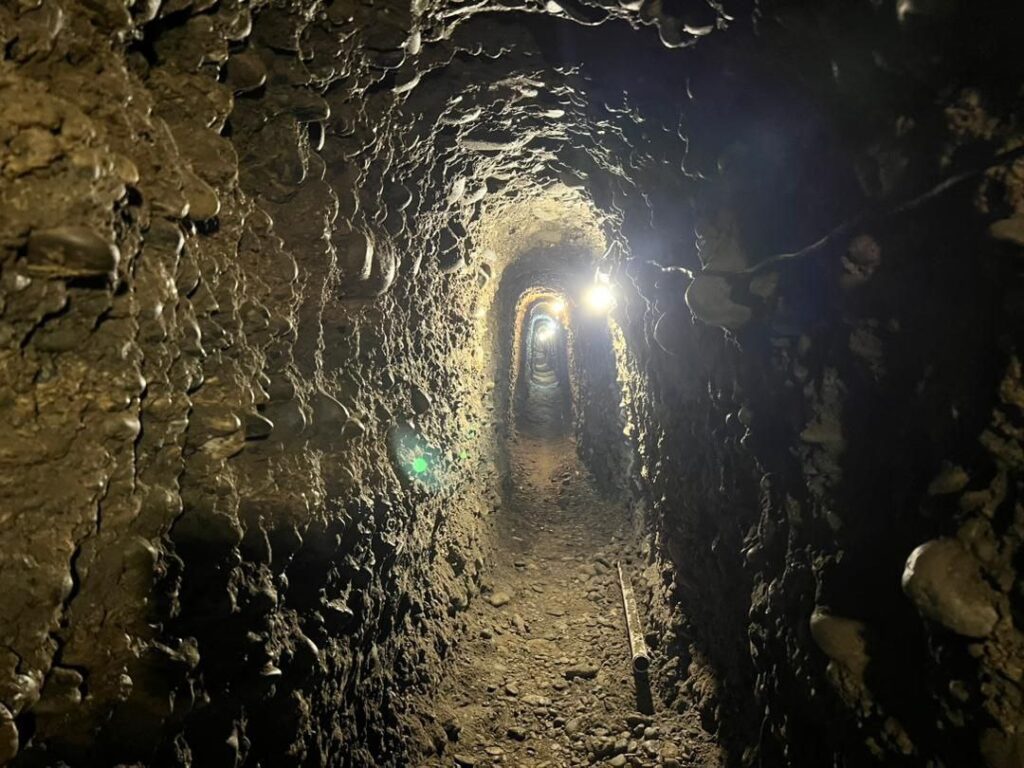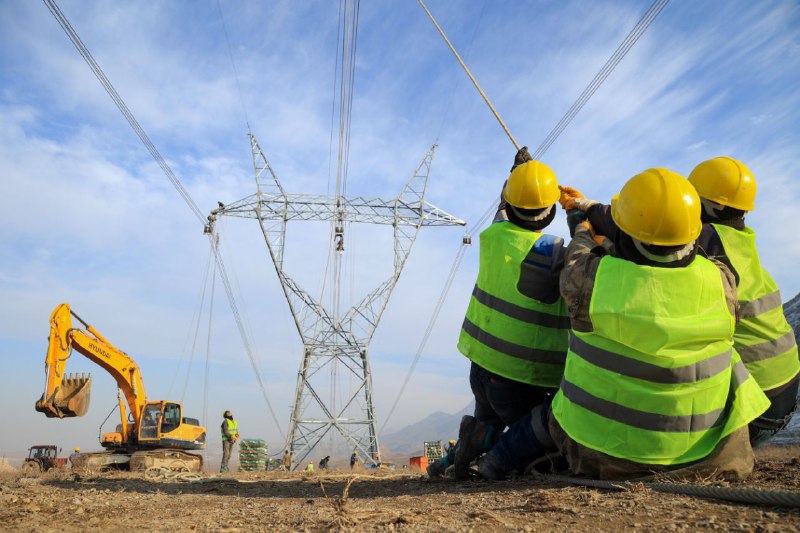Viewing results 1 - 6 of 246
Kazakhstan's Ministry of Internal Affairs plans to increase the number of female police officers in the country to 750, to support the adoption of new laws on domestic violence. Commented the deputy minister for internal affairs Igor Lepekha: "We have female investigators specialized in investigating violence against girls and women. They conduct the initial inquest. We have studied international experience in this matter, we were supported by regional akims [regional administration]. Unfortunately, there are questions about the financing of the program." Earlier this year the police created a special unit to combat domestic violence. It is into that unit that the additional female officers will be recruited. Kazakhstan has adopted a new law on domestic violence, which toughens liability for criminal acts of domestic violence committed against women and children.
Another underground passage has been found in the Jalal-Abad region of Kyrgyzstan, which was being used to illegally transport both people and contraband goods into neighboring Uzbekistan. The suspects involved have been arrested. That's according to a report from news outlet, Kaktus, which references information from the press service of the Department of Internal Affairs of Kyrgyzstan's Osh region. On April 5, officers of the Ministry of Internal Affairs of Osh region arrested a female citizen of Uzbekistan who illegally crossed the Kyrgyz border. During the investigation, it turned out that she crossed the international border into Kyrgyzstan through a secret tunnel connecting the two countries. The police opened a criminal case under Article 168 of the Criminal Code of Kyrgyzstan on “Organization of illegal migration, illegal importation of migrants.” On the night of April 12, a local citizen was arrested in the Nooken district suspected of organizing illegal crossings of the Kyrgyz-Uzbek border for payment. According to police, during the arrest, specially marked currency and night vision binoculars were confiscated. In addition, 87 boxes of narcotics with an initial value of about $30,000 dollars were found in his house. This is the third secret underground passageway discovered, with two secret underground tunnels connecting the city of Khanabad, Andijan region (Uzbekistan), with Bekabad village, Suzok district, Jalalabad region (Kyrgyzstan) having previously been identified. Members of a cross-border criminal group consisting of citizens of Uzbekistan and Kyrgyzstan were captured. On March 17 of this year, a Kyrgyz citizen took a total of 813 mobile phone devices in 16 bags to Uzbekistan using an underground tunnel, and tried to take 1.745 kilograms of gold bars and jewelry out of the country. They were apprehended with physical evidence.
A decision to end Uzbekistan's price caps on coal has been made against the background of rising costs for electricity. To date, hard coal in the country is a social commodity, which is sold to the population at fixed prices. Currently, coal is sold under direct contracts to the population, state organizations and thermal power plants, and because it's included in the list of socially important goods, its price is regulated by the state. Wholesale and retail prices for coal are considered and approved by the Interdepartmental Commission on Tariffs at least once a year (valid through June 1). Retail coal is sold to the population through coal warehouses run by the state company "Kumir ta'minot". The Ministry of Energy, together with other agencies, has a mandate to make proposals for the formulation of wholesale and retail prices "based on market principles" within a month. In 2023 Uzbekistan's coal production rose to 6.19 million tons, up 15.5% from the previous year. However, imports also increased -- 3.1 million tons were purchased from Kazakhstan alone. At the beginning of this year, Uzbek president Shavkat Mirziyoyev instructed domestic mining companies to increase coal production by 22%, taking into account the needs of the population, social sphere and industries. According to experts, the potential of the coal industry is not being properly utilized. At the same time, coal combustion is the main air pollutant in Uzbekistan, especially in Tashkent, which has recently taken a leading position on the list of cities with the worst air quality. During the fall and winter period, greenhouses on the outskirts and industrial enterprises of the Uzbek capital massively use coal and fuel oil as heating and power generation fuel. This has led to a sharp deterioration of air quality indicators and an increase in respiratory diseases among citizens.
Kyrgyzstan's minister of economy Daniyar Amangeldiev has told a press conference in Bishkek about his vision for the country's energy sector. A new tariff pricing policy has been presented to the Kyrgyz parliament, and will be adopted in May this year. According to Amangeldiev, the new electricity tariff policy will allow for new capacity to be introduced, and for the country to reduce the country's electricity deficit year by year until the country's power-demand needs are met. Electricity prices will rise by 10.8% as early as May 2024, and taking into account inflation, this increase will be permanent. Amangeldiev said that it will now be much easier to obtain permission from the authorities to build energy facilities in the country. Measures have also been taken to make it easier for investors to invest in Kyrgyzstan's energy sector. "With its adoption (the new law on tariff policy), those capacities that are planned will be introduced, and accordingly, every year we will reduce the shortage of electricity to fully meet the needs of the country, and possibly [lead to] electricity export," he commented, adding that this year in Kyrgyzstan developers have started 10 small hydropower plants (HPPs). Earlier, Kyrgyz president Sadyr Japarov said that in addition to the construction of large energy facilities, it's necessary to build small HPPs. In 2022, the World Bank allocated $50 million to Kyrgyzstan to modernize its energy infrastructure -- upgrading transformers, power lines and installing smart meters. A year later, the bank provided another $80 million in concessional loans (at below-market lending rates) to improve the power grid and support small-scale power generation. Last fall, the World Bank allocated $5 million to the republic for a feasibility study of the project of a new large HPP called Kambarata-1.
Uzbekistan is drafting a law banning the import, sale and production of electronic cigarettes and tobacco heating systems. The bill has been published on the regulation.gov.uz portal and its discussion will last until April 18, The Times of Central Asia has learned. The draft law mentions that over the past seven years, "modern" or "innovative" types of nicotine and tobacco products have appeared in Uzbekistan. The result is a dramatic increase in the number of smokers -- especially among children and young adults. According to an explanatory addendum to the bill, interest in e-cigarettes is skyrocketing among high school students. The number of devices seized from students during raids in schools and public places has increased every year since the government has been keeping track. There were six cases in 2019, 27 in 2020, 31 in 2021, 856 in 2022, and 1,040 in 2023. Among the 18-29 year old population, the use of tobacco heating systems is more than 2.5 times higher than in the 30-69 year old population. Unless action is taken, the bill states that one in five young people will suffer from nicotine addiction in the future. "This law prohibits the circulation of electronic nicotine delivery systems, liquids for them, and electronic cigarettes on the territory of the republic," the bill says. Once passed, Uzbek e-cigarette smokers will face heavy fines and criminal liability for breaking the new law.
Kazakhstan's president Kassym-Jomart Tokayev has signed a law on the creation of new rules for the country's business sectors. The move is designed not only to streamline forms of state control and supervision over business, but also to improve the general conditions for entrepreneurship in the country. "Our goal is to create more favorable conditions for the development of business in the country," the Akorda press service said, outlining some key points of the new law. At the sectoral level, the amendments lay out mechanisms that will facilitate rapid response, investigations and preventive control procedures without any physical presence at inspection sites. The changes apply to various business areas: - Fisheries: it will now be possible to open aquaculture facilities on promising land plots intended for agriculture; - Plant quarantine: the administrative burden on the movement of regulated products is significantly reduced with the cancellation of quarantine certificates; - Industry: manufacturing enterprises will receive support in the form of supply of domestic raw materials; - Oil & gas industry: requirements have been clarified regarding documents confirming the origin of refined oil products; - Financial markets: procedures for business interaction with banks will become more simplified; and, - Registration of legal entities: the processes of registration and re-registration of legal entities and their branches are being converted to electronic format, which will make the receipt of state services more accessible and transparent. The purpose of these changes is not only to facilitate the process of doing business, but also to balance the interests of consumers, entrepreneurs and the state. This direction is part of a strategy to promote entrepreneurship in Kazakhstan -- which confirms the desire to improve the business environment and stimulate economic growth outside of the extractive industries.






